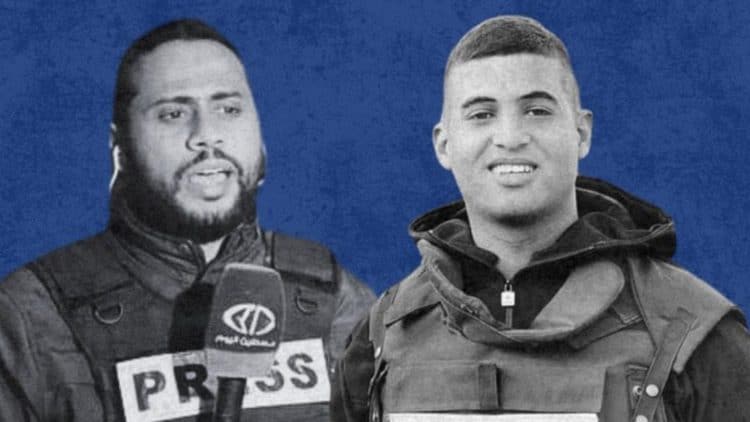Israeli airstrikes killed two Palestinian journalists in Gaza on Monday, just hours apart. Among them was Hossam Shabat, an Al Jazeera reporter who had already prepared his final words—knowing he was likely to be targeted.
The first strike hit Mohammed Mansour, a Palestine Today correspondent, along with his wife and son. They were in their home in Khan Younis when the missile struck.
Gaza’s journalists barely had time to grieve. Less than an hour later, another airstrike killed Shabat in northern Gaza, near Beit Lahiya.
A Journalist Who Knew His Fate
Shabat, only 24 years old, had spent 18 months documenting the horrors unfolding in northern Gaza. He knew his work put him at risk, so he left a final message:
“If you’re reading this, it means I’ve been targeted and killed by Israeli forces.”
In his posthumous statement, he recalled his journey:
- “When this all began, I was just 21 – a student with dreams like anyone else.”
- “I slept on pavements, in schools, in tents—wherever I could.”
- “I endured hunger for months, yet I never left my people’s side.”
A Targeted Killing?
Shabat contributed to Drop Site News, a US-based outlet that accused Israel of deliberately targeting him. He was one of six Al Jazeera journalists placed on what the publication’s co-founder called a kill list in October.
Shabat himself had said he felt “hunted”, claiming Israel fabricated a dossier to falsely label him a terrorist.
His editor, Sharif Abdel Kouddous, published Shabat’s last article “through tears”, struggling to capture the depth of his writing.
Global Outrage, but No Action
Since October 2023, Israel has killed more than 206 journalists in Gaza, according to the Gaza Media Office. This makes it the deadliest war for journalists in modern history.
Despite this, a US State Department spokesperson blamed Hamas for the deaths of Mansour and Shabat.
The Palestinian Journalists’ Syndicate (PJS) called on the international community to stop the complicity and hold Israel accountable.
His Final Plea: ‘Do Not Let the World Look Away’
With airstrikes continuing and Gaza’s journalists risking their lives every day, Shabat had one last request for his colleagues:
“Do not stop speaking about Gaza. Do not let the world look away.”
You may also like: Hillary Clinton’s 7-word response to Trump war group chat as Trump’s excuse taken down







